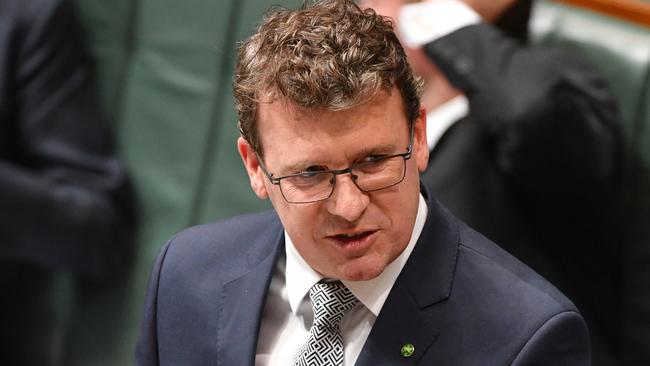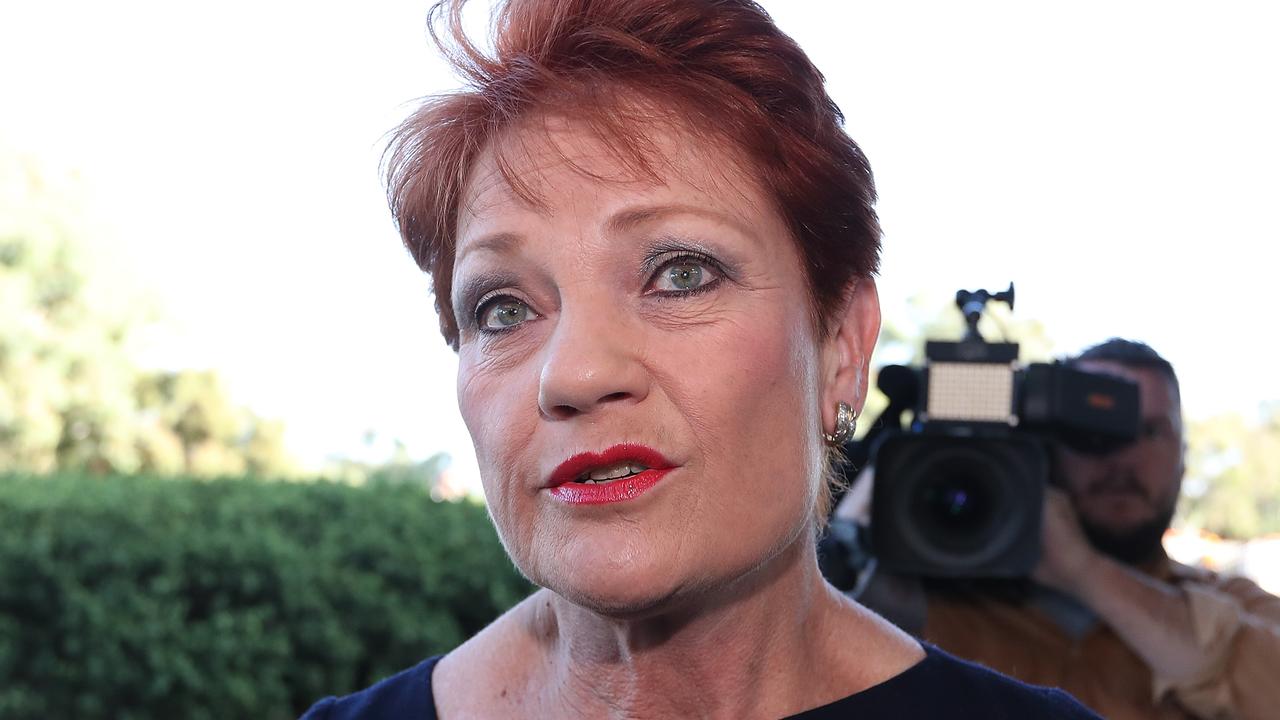Q&A Wrap: Alan Tudge believes English language is key for migrants
Minister for Multicultural Affairs Alan Tudge says having a good grasp of English is a key for migrants to integrate into society.

The English language is the “common glue” that binds communities in Australia together and pockets of migrants who do not speak it fail to effectively integrate, the federal Minister for Multicultural Affairs believes.
Alan Tudge said while it is understandable new migrants cluster together with family and friends, over time it becomes more difficult for them to engage with Australian society, a situation that can lead to serious social issues.
“We need to ensure for the interests of the migrant as much as for social cohesion there is that common language across the community, the common glue which is so vital for social cohesion,” he told an edition of the ABC’s Q & A program filmed in Dandenong, Victoria.
“Over the period since as long as you can remember, people have tended to cluster together from the same background I guess because of family, friends, familiarity and whatever. But the research was showing that there is a higher concentration of the overseas born in particular pockets and often that is overlaid with a high proportion of people who don’t speak the English language.
“That makes it difficult then to be able to integrate with the broader community, particularly if you can’t speak English. If you can’t communicate well, it’s much more difficult to integrate into the broader community.”
What tips do you have for immgrants about fitting in with the wider Australian community? Our #QandA panel responds pic.twitter.com/gzvedtHpYG
— ABC Q&A (@QandA) April 9, 2018
Monday night’s program focused on three topics: multiculturalism in Australia, the relationship Victoria Police have with the community — especially minority groups — and the latest Newspoll results.
Mr Tudge made the comments about the English language while defending moves to introduce a higher standard of English required of new migrants.
“I find that sort of thing real offensive. It’s devaluing the contribution that thousands of people I represent and you represent have made to this country without much English,” Labor’s Justice spokeswoman, Clare O’Neil, said.
“There are lots of people in this audience right now who themselves came here without much English or might have had a parent who came without much English and they’re making a very fine contribution to this country.”
Stuart Bateson says it's difficult to learn language & I would look for friends. @NyadolNyoun says the university level is too exclusive #QandA pic.twitter.com/78SwmpxEEU
— ABC Q&A (@QandA) April 9, 2018
Nyadol Nyuon, a community advocate and lawyer originally from South Sudan, said language tests “easily become a tool of exclusion” as some people would never be able to pass it “through no fault of their own”.
NEWSPOLL
Comments made by former deputy prime minister and Nationals leader Barnaby Joyce suggesting Malcolm Turnbull resign if the polls hadn’t risen by Christmas were unhelpful, Mr Tudge told the panel when its discussion turned to the government’s 30 negative Newspolls.
The Prime Minister can win the next election, he said, and elections have been won from far worse positions in the past.
“It’s very common for governments to slip in between elections,” Mr Tudge said.
Carlton lost by 24 points to Collingwood. Malcolm Turnbull just lost his 30th Newspoll. Who's going to have worse 2018? Our #QandA panel responds pic.twitter.com/vJOWP2X6lh
— ABC Q&A (@QandA) April 9, 2018
“Let’s reflect back on history. Everyone says John Howard was a great PM — and he was — but he was behind in the polls in 1998 before the 2001 election. And before the 2004 election. Before the 2001 election he was at one stage behind 39-61.
“Politics these days turns very, very quickly.”
Ms O’Neil said while “big issues” are facing the country, “all we see is politicians talking about themselves”.
Ms Nyuon said in the discussions about polls, the losers are the Australian people who suffer from bad policy devised under pressure to shore up support.
POLICE
Commander Bateson, from Victoria Police’s Priority Communities Division, called for a more diverse force to combat poor rates of trust in certain minority groups.
What is Victoria Police doing about the attitudes of police on the ground? Stuart Bateson & @NyadolNyoun respond #QandA pic.twitter.com/BMnH68Qfy7
— ABC Q&A (@QandA) April 9, 2018
“We need a more diverse police force. We need to have a police force that is representative of the community we serve,” he said.
“I think one of the challenges for us is that we’ve got to become an employer of choice for these communities. If the relationship, if there’s not great trust in confidence for us, then they don’t necessarily see that they’ve want to work for us.”
“When I started 30 years ago I think it was a bit easier for frontline police,” he said. “I look at our people today ... they’re starting their every working day by putting on a bulletproof vest.
Ms Nyuon, meanwhile, said cases of police mistreating African migrants date back to the early 1990s.
.@NyadolNyoun says there are people who are afraid but is not a solution. Being treated like criminals can cost people their lives #QandA pic.twitter.com/J9Z6plZvyY
— ABC Q&A (@QandA) April 9, 2018
“These stories of brutality are not new to us. I know many personal stories of people who have been brutalised or allegedly brutalised by the police,” she said.
“There’s still a great deal of trust for the police. There was a survey done by Monash University which indicated 80% of the population have a lot of trust in the police and I think that reflects respect for the police. But people from South Sudanese background, that is as low as 26%.
“There is still room to create that kind of environment where all of us feel safe enough and the police don’t feel as if the manner in which they put their life on the line is not appreciated enough.”




